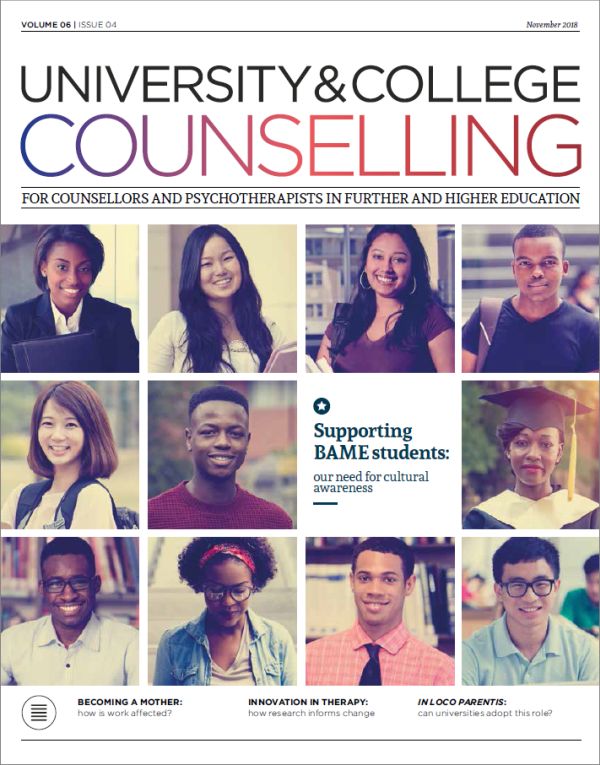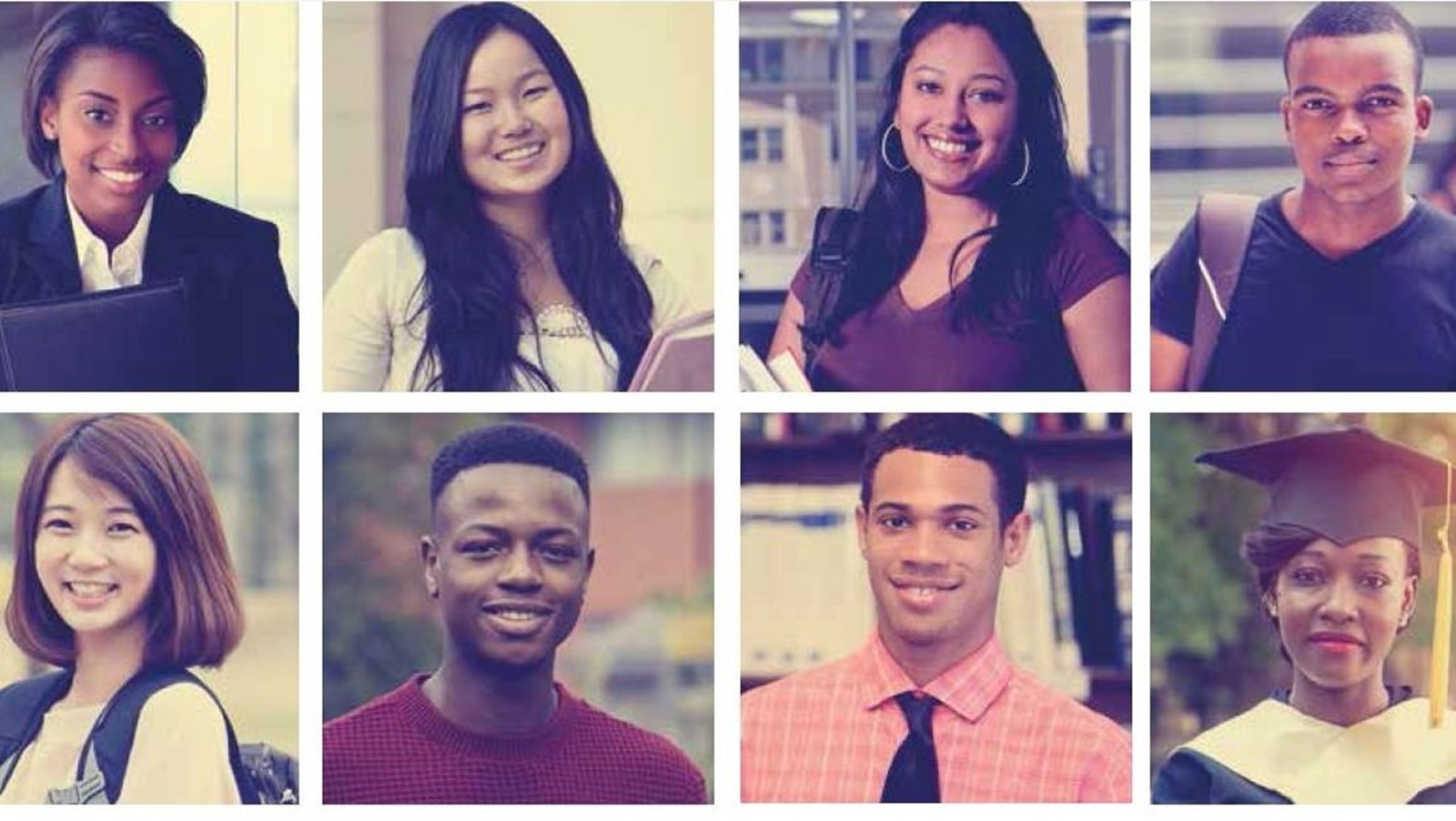In this issue
Features
Supporting black British university students part two: understanding students’ experiences with family members (free article)
In their second article exploring factors affecting BAME student experience, Douglas Guiffrida and colleagues explore the importance of family relationships and culture within collectivist cultures.
Supporting social innovation in post-secondary counselling units
Micheal L Shier and Tanya E Surette present the results of a research project helping practitioners understand what factors help make therapy successful.
Five reasons why universities are not in loco parentis for their students
Peter Jenkins explains why universities must take great care before assuming responsibilities which contravene privacy and confidentiality case law.
Going virtual: how can technology play a role in supporting students with mental health problems?
From the Australian National University, Lou Farrer and Amelia Gulliver describe an innovative online hub to support student mental health.
When a counsellor becomes a parent. The impact of motherhood on the work of therapists
Eleanor Brown reports on her research
The BACP-UC Executive research special interest group
Afra Turner reports on a newly established research group which aims to garner evidence to support the effectiveness of our work across FE and HE
Regulars
Profile
Rotimi Akinsete
Divisional news
Notes from FE
Mary Jones
Notes from the Chair
Géraldine Dufour
Notes from HUCS
Alan Percy

A pdf of this issue is available in the University and College Counselling archive
From the editor
‘ I’m no longer engaging with white people on the topic of race… I can no longer engage with the gulf of an emotional disconnect that white people display when a person of colour articulates their experience. You can see their eyes shut down and harden… It’s like they can no longer hear us.’1
In this issue, we continue the exploration of the experience of black students and staff studying and working in ‘predominantly white institutions’ (PWIs).
As a white man, it’s uncomfortable to acknowledge the privileges I enjoy in society simply because of the colour of my skin. In the last issue, and continuing now, our contributors draw our attention to – and encourage us to stop and contemplate – the lived experience of colleagues and students who do not share those automatic privileges and advantages. In this issue, the impact of being part of a collectivist as opposed to an individualistic culture are highlighted, along with the resulting implications for effective support. I hope that others will contribute to the journal on this theme, to ensure that we don’t think, ‘Yes, we’ve “done” race’ – but rather, learn to incorporate issues of race, difference and justice into our ongoing thinking and work as professionals in PWIs.
Other articles in this issue address a wide range of issues that affect our work as therapists and managers of counselling services. What is it like to become a mother while in full-time work? Apart from statutory maternity leave, what considerations do we give to that life-changing event? Is it possible to return to full-time work with the same focus and energy when the role of motherhood is, in itself, such a huge commitment?
The ‘student mental health’ media narrative continues to gain momentum. Despite our shared experience, it can seem that our voices often receive short shrift from the powers that be, with more attention going to drama-based narratives which ignore the work that is already being done in our institutions. As examples of that work, from the US, we hear about a research project highlighting factors which appear to make the most difference for clients in our services; from Australia, colleagues write about the impact of a virtual mental health hub on student wellbeing; and from here in the UK, Peter Jenkins asks us to consider whether the notion of universities and colleges acting ‘in loco parentis’ stands up to scrutiny in the light of case law in this complex and sensitive area.
As always, there’s plenty to challenge and inform. I hope you can take half an hour to sit with a coffee and enjoy your colleagues’ input.
David Mair
david.mair@bacp.co.uk
Reference
1. Eddo-Lodge R. Why I’m no longer talking to white people about race. London: Bloomsbury; 2017.
